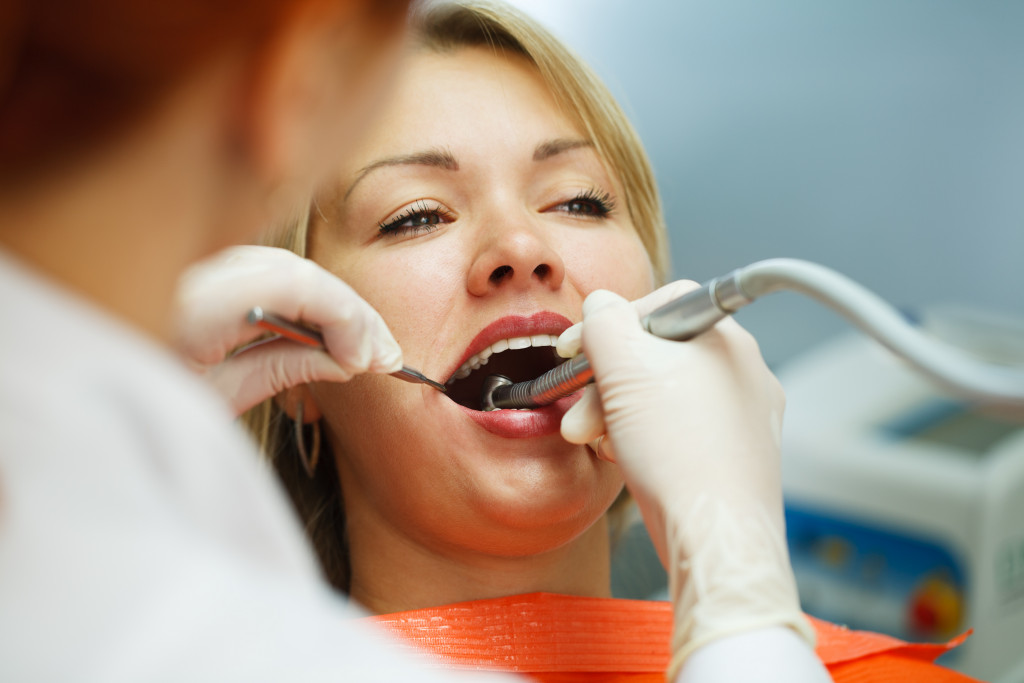Did you know that the mouth is the gateway to the rest of the body? That’s right — oral health is essential for overall health and well-being. Unfortunately, poor oral hygiene can lead to several serious problems, including gum disease, tooth decay, and heart disease. That’s why it’s so important to practice good oral hygiene habits.
But with so much information out there, it can be tough to know where to start. Thus, understanding the best practices for oral health is a huge help. By following these simple tips, you can help keep your mouth healthy and avoid serious problems down the road. Here’s what you need to know:
Brush Your Teeth Twice a Day
You probably learned this one when you were a kid, but it bears repeating — brushing your teeth twice a day is essential for oral health. Doing so helps remove plaque, a sticky film of bacteria that can lead to gum disease and tooth decay. Plaque is constantly forming on your teeth, so it’s important to brush regularly to get rid of it.
Brushing also helps get rid of bacteria from your teeth and gums and helps to prevent cavities and gum disease. In addition, brushing stimulates saliva production, which helps keep your mouth healthy and free of foul odor.
So next time you get tempted to skip brushing your teeth, remember that it’s an essential part of taking care of your oral health. You’ll be glad you did.
Floss Every Day
In addition to brushing, you also need to floss your teeth every day. Flossing helps remove plaque and food particles from in between your teeth, places that your toothbrush can’t reach. If plaque doesn’t get removed, it can turn into tartar, a hard substance that a dentist can only remove. Tartar can lead to gum disease and tooth decay, so it’s essential to remove it as soon as possible. And flossing is the best way to do that.
When choosing a floss, look for one that’s comfortable to use and easy to maneuver. There are different types of floss available, so you may need to try a few before you find the right one. Once you find the right floss, use it every day, preferably after brushing your teeth. This way, you can ensure that your teeth and gums get a thorough cleaning.
Use Mouthwash
Mouthwash is an essential part of an oral hygiene routine. By swishing mouthwash around the mouth for a few minutes, you can remove plaque and bacteria that brushing alone cannot reach. In addition, mouthwash can help freshen breath and reduce the risk of gum disease.
However, it is essential to use mouthwash correctly to achieve these benefits. Be sure to swish the mouthwash around all areas of your mouth, including your teeth, gums, and tongue. Spit the mouthwash out after swishing, and do not drink it.
You should also wait at least thirty minutes after eating before using mouthwash, giving the saliva a chance to break down the food particles. By following these simple tips, you can ensure that your mouthwash works effectively to improve your oral health.

Get Routine Dental Checks and Cleanings
Even if you brush and floss regularly, it’s still important to get routine dental checkups and cleanings. These appointments give your dentist a chance to check for any problems that you may not be able to see or feel. During a cleaning, your dentist or hygienist will remove plaque and tartar from your teeth. They will also polish your teeth and provide a fluoride treatment to help prevent cavities.
So, make sure you have a reliable dental clinic that you visit at least twice a year. This way, you can keep your mouth healthy and catch any problems early on. However, you may need to go more often if you have gum disease. By getting routine dental care, you can help keep your mouth healthy and avoid serious problems down the road.
Eat a Healthy Diet
What you eat has a direct impact on your oral health. A high in sugar diet can lead to tooth decay, while a high in acidic foods diet can erode tooth enamel. If you want to keep your mouth healthy, eating a balanced diet that includes plenty of fruits, vegetables, and whole grains is essential. You should also limit sugary and acidic foods and drinks.
In addition, you should make sure to drink plenty of water. Water helps rinse away food particles and bacteria, and it can also help prevent dry mouth. Dry mouth can lead to cavities and gum disease, so staying hydrated is essential. By eating a healthy diet and drinking plenty of water, you can help keep your mouth healthy and avoid problems down the road.
Good oral hygiene starts at home. By following the above tips, you can keep your mouth healthy and avoid problems in the future. Remember to brush, floss, and use mouthwash every day. In addition, get routine dental checkups and cleanings, and eat a balanced diet. By taking care of your mouth, you can help keep your entire body healthy.











